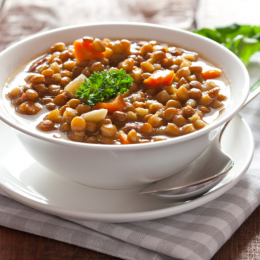5 Sneaky Signs You’re Dehydrated
When your body’s fluid level gets low, these symptoms will let you know.

You’re probably aware of the more obvious signs of dehydration: yellow urine, dry mouth, feeling thirsty. But the less obvious signs are just as important and sometimes appear sooner, especially as you get older.
The amount of water you need doesn’t increase as you age, but your body’s ability to conserve water is reduced and your sense of thirst weakens. So it’s important to drink even if you aren’t thirsty.
“Sometimes my older patients just don’t feel like eating or drinking much during the day, so it’s crucial to encourage healthy eating and drinking patterns,” says Spencer Nadolsky, D.O., a family physician and author of The Fat Loss Prescription. “This is especially true in patients who are on diuretics for blood pressure or other conditions.”
The importance of water can’t be overstated. It makes up roughly two-thirds of our bodyweight and is responsible for a variety of functions, including digestion, blood flow, and temperature regulation. It’s like oil to a machine.
When your body is low on fluids, all systems must work harder to function properly. This not only leaves you feeling fatigued, but if untreated, it can lead to dizziness when standing, kidney problems, or seizures due to electrolyte imbalances, Dr. Nadolsky says.
That’s why it’s so important to prevent dehydration or catch it early. Here are five lesser-known signs you might be low on H2O.
1. You Have Bad Breath
When you’re dehydrated, your body secretes less fluid. You already know that means decreased urination, but it’s also true for tears and saliva.
Saliva is antibacterial, so if you’re not producing enough, it can lead to bacteria overgrowth in your mouth. That means bad breath. It’s also why so many of us experience morning breath, as saliva flow almost stops completely while we sleep.
If you suddenly have dragon breath for no apparent reason, try drinking more water regularly. That alone may clear it up.
2. You’re Craving Sweets
Dehydration can mask itself as hunger, especially in the form of sugar cravings. When you’re low on fluid, your body uses glycogen (carbohydrate stored in muscle) at a faster rate, thus reducing your energy stores more rapidly. This is particularly common if you’ve been exercising. Your body will likely crave carbs to help replenish those glycogen stores.
Before you reach for the sweets, drink some water. You might find it satisfies your craving.
3. Your Skin Feels Cold and Dry
When you’re approaching severe dehydration, your body starts to limit blood flow to the skin, says Bruce Bushwick, M.D., a family physician and chair of the department of family medicine at Wellspan York Hospital.
“We call it ‘shunting’ your blood from your skin to your internal organs,” he says. Your body is doing what it can to conserve whatever fluid is left—even stealing water from Peter to pay Paul. The skin is the first place to be robbed of water.
4. You Fail the Pinch Test
Reduced blood flow to the skin can also make it feel more doughlike and less elastic, Dr. Bushwick says.
Subscribe to our newsletter
It's quick and easy. You could be one of the 13 million people who are eligible.
Already a member? Click to discover our 15,000+ participating locations.
Follow Us
If you pinch the skin on the back of your hand and it doesn’t snap back as quickly as usual, it might mean you’re dehydrated. Just don’t expect your skin to rebound as quickly as it did in your 20s.
5. You Feel Lightheaded or Dizzy
Less water circulating in the body means less blood, too. This can lead to lower blood pressure and cause you to feel lightheaded, faint, or dizzy. One of the key signs of dehydration-related dizziness is a sudden rush of lightheadedness when you stand up too quickly, a condition called orthostatic hypotension.
Drinking plenty of fluids helps reduce these symptoms in most cases. But if a person is dehydrated to the point of mental confusion—or have experienced vomiting or diarrhea—it warrants immediate medical attention.
Staying Hydrated: Your Action Plan
There’s no set amount of water that every person needs. What’s best for you depends on the foods you’re eating, how much you exercise, and any health conditions you may have.
Since thirst is less acute in older adults, try to drink before dehydration sets in. Keep a refillable water bottle with you whenever possible, and drink a full glass with every meal. Remember that fluid-filled foods (such as fruit and soup) as well as beverages (including tea and fruit juice) hydrate you, too.
Listen to your body and watch for signs of dehydration—the five above plus more obvious ones like headache, fatigue, and yellow urine. And if you’re ever concerned about hydration or experience any unusual or ongoing symptoms, talk to your doctor.
Check Your SilverSneakers Eligibility Instantly
SilverSneakers gives you free, unlimited access to more than 15,000 gyms and fitness centers across the nation, plus classes and tools designed to keep older adults strong and independent. Check your eligibility instantly here.





